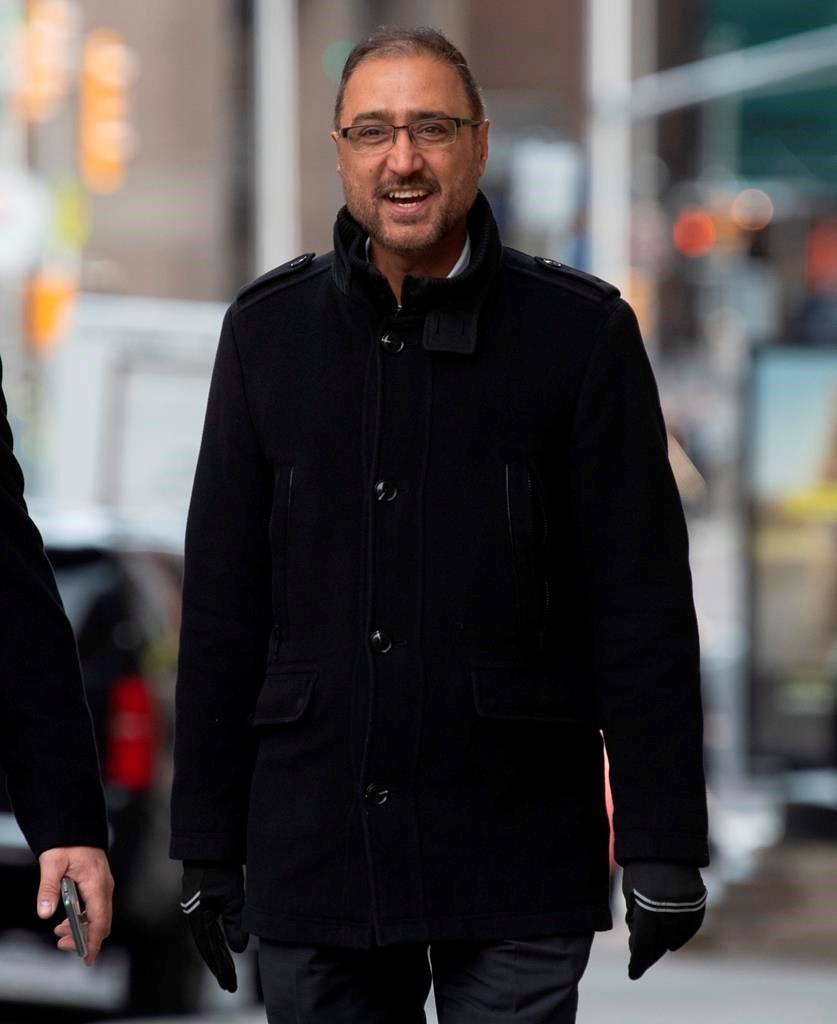EDMONTON – Edmonton's mayor says he expects Premier Jason Kenney will respect local autonomy as Alberta prepares to end its vaccine passport program along with other COVID-19 health restrictions.
Amarjeet Sohi responded Friday after Kenney suggested he may intervene with legislation to stop municipal leaders from imposing their own rules.
Sohi said he worries the province is moving too quickly, given Alberta is still in the Omicron wave of the pandemic.
“Municipal leaders are elected and held accountable by their constituents for making decisions that protect our local communities and residents' well-being,” Sohi said in a statement.
“I know that Premier Kenney appreciates each jurisdiction's autonomy and each order of governments' ability to make their own decisions.
“I believe that his government will not restrict our ability to take actions to keep our fellow Edmontonians safe.”
Cathy Heron, head of Alberta Municipalities, an umbrella organization representing towns, cities and villages, said Kenney’s announcement came out of the blue.
“We find Premier Kenney’s remarks puzzling and troubling,” said Heron in a statement.
“The topic of amending the (Municipal Government Act) to restrict municipal governments’ ability to introduce public health bylaws has never been discussed in any meeting held between Alberta Municipalities and the Government of Alberta, and we do not expect to discuss it in the future.”
Heron said that Alberta Municipalities believes local governments need autonomy when responding to this pandemic and its effects on residents.
Kenney, facing low public opinion polls, a looming leadership review, some caucus members upset with COVID-19 rules and an ongoing anti-vaccination mandate protest at the United States border, announced Thursday a stepped-up timetable for removing public health restrictions.
He said his United Conservative government will announce a date next week to soon end the vaccine passport. Most of the remaining health rules, he said, will be phased out by the end of the month if hospitalization numbers remain stable or decline as expected.
Kenney said Alberta's vaccination rate, coupled with stabilizing hospital patient numbers, make it feasible to end the passport program.
Critics say he is pandering to extremist elements in his caucus, party and to protesters at the border.
“By giving in, it encourages others to do the same and make more demands,” said Opposition NDP justice critic Irfan Sabir.
“For a government that claims to be big for law and order, they quickly tossed out their values.”
Sohi said an accelerated health cancellation plan risks harming vulnerable people, including those under age five who are not eligible for vaccinations.
He said the city will look at implementing its own health measures if necessary.
Kenney, speaking to media online Friday after a virtual meeting with other premiers, said provinces are in the best position and have the data to make the best decisions for everyone.
He said that different rules among different jurisdictions just creates confusion.
“What Albertans want is clarity in terms of what the public health measures are,” said Kenney.
“I would encourage municipal elected folks to respect the decisions that the province makes on public health matters and not to improvise public health policy.”
A week ago, Kenney said the passport could be eliminated by the end of March.
Sabir said it’s telling that Kenney has previously granted more autonomy to schools to impose their own COVID-19 health rules, saying they were in the best position to determine the unique needs of their students, but now seeks uniformity in rules for municipalities.
“The premier has a track record of flip-flopping," Sabir said. "When it comes to taking responsibility, he will find a convenient place to shift the blame."
Also, earlier in the pandemic, Kenney declined to bring in a provincewide mask mandate on the grounds that most municipalities had already done so and that his government respected their right to do so.
Heron said Kenney’s change in tack on municipal accountability is puzzling given the latitude given municipal governments earlier in the pandemic to do what they felt necessary to rein in COVID-19.
“The restrictive approach Premier Kenney is now considering is completely at odds with his government’s earlier direction,” said Heron.
The passport — known in Alberta as a restriction exemption — mandates anyone using non-essential services such as bars and restaurants show proof of COVID-19 vaccination.
Alberta's program is voluntary, but businesses that do not participate are subject to restrictions, including severely reduced customer capacity.
Since being introduced last September, the passport has come to symbolize the clash within Alberta — and within Kenney's own caucus and party — over balancing public health orders with individual rights and freedoms.
Alberta has 1,584 people in hospital with COVID-19 as of Friday, with 118 in intensive care.
This report by The Canadian Press was first published Feb. 4, 2022.
Dean Bennett, The Canadian Press



